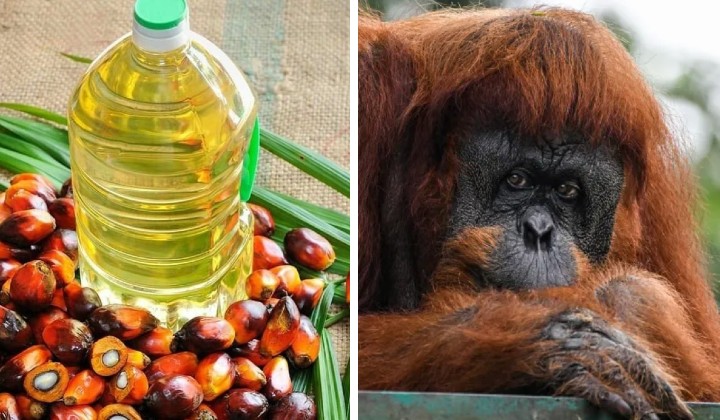Orangutan Pawns: Sacrificing Conservation For Diplomatic Gains?
Is this strategy genuinely sustainable or a misguided attempt to greenwash the palm oil industry’s environmental impact?

Subscribe to our FREE Newsletter, or Telegram and WhatsApp channels for the latest stories and updates.
In a bid to bolster its image as a sustainable palm oil producer, Malaysia has unveiled a controversial new strategy: “Orangutan Diplomacy.”
Plantation and Commodities Minister Datuk Seri Johari Abdul Ghani recently announced plans to offer orangutans as gifts to significant palm oil importing nations, such as the European Union (EU), India, and China, to foster foreign relations and showcase Malaysia’s commitment to biodiversity conservation.
Drawing inspiration from China’s well-known “Panda Diplomacy,” which has seen the country gift giant pandas to zoos around the world as a symbol of goodwill, Malaysia hopes that its “Orangutan Diplomacy” will prove to the global community that the nation is dedicated to balancing food security needs with environmental protection.
The move is also a response to the EU’s ban on palm oil linked to deforestation, which aims to protect forests and biodiversity.
Malaysia, the world’s second-largest palm oil producer, has criticized the ban as discriminatory, arguing that it unfairly targets their industry.
The European Parliament approved a landmark #deforestation law to ban imports into the EU of palm oil, coffee, beef, soy, paper and other commodities if they are linked to the destruction of the world's forests and human rights violations.
— Aida Greenbury (@AidaGreenbury) April 19, 2023
Indonesia and Malaysia, the world's… pic.twitter.com/udbURtJxHo
A Misguided Attempt to Sugarcoat Palm Oil’s Bitter Reality?
However, the plan has raised eyebrows among conservationists and animal rights activists who question the ethics of using endangered species as diplomatic pawns.
Orangutans, native to the rainforests of Borneo and Sumatra, have seen their populations dwindle due to habitat loss, primarily driven by the expansion of palm oil plantations.
It devastates orangutans, as they rely on these forests for food, shelter, and breeding.
As of 2023, approximately 104,700 orangutans remain in Malaysia’s wild.
This number includes both Bornean and Sumatran orangutans.
A century ago, there were likely over 230,000 orangutans.
From letting wildlife contrabands out to endorsing underage marriage to orangutan diplomacy. Kita ni tak segan dengan negara lain ke?
— _n (@an7s3m0t) May 9, 2024
A Distraction from Malaysia’s Palm Oil Problem?
Critics argue that rather than gifting orangutans to foreign nations, Malaysia should focus on protecting the species’ natural habitats and promoting genuinely sustainable palm oil production practices.
They point to the alarming decline in orangutan populations, with the Bornean orangutan now classified as critically endangered and the Sumatran orangutan listed as endangered by the International Union for Conservation of Nature (IUCN).
They also contend that using wildlife as diplomatic tools is a misguided attempt to greenwash the palm oil industry’s environmental impact and distract from the urgent need for genuine conservation efforts.
Malaysia should instead focus on implementing and enforcing stricter regulations on palm oil production, such as ensuring that plantations do not encroach on protected areas and that companies adhere to sustainable practices like the Roundtable on Sustainable Palm Oil (RSPO) certification scheme.
Share your thoughts with us via TRP’s Facebook, Twitter, Instagram, or Threads.





